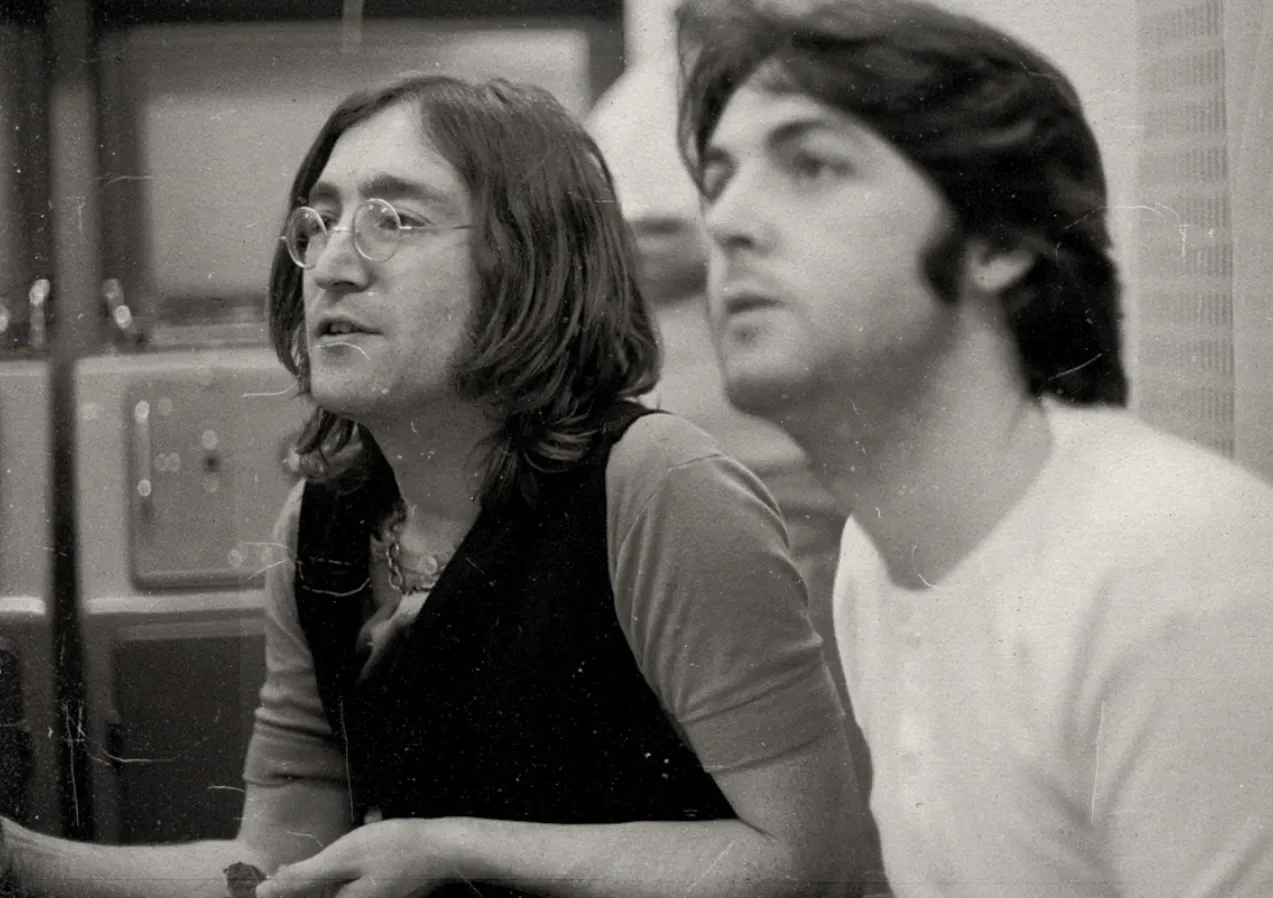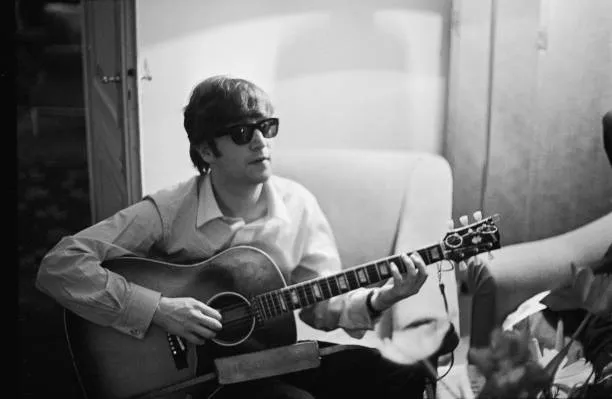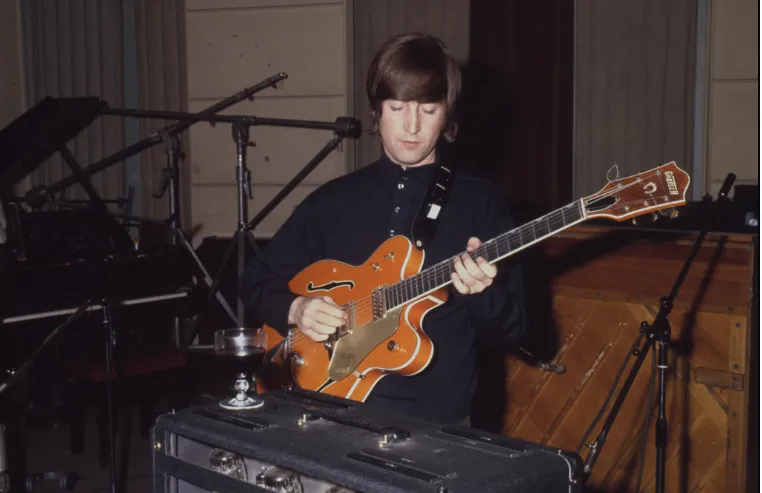In the pantheon of his storied career, John Lennon’s 1970 song "Isolation" stands as a powerful testament to the personal and emotional tumult he experienced during that period.
Separated from other tracks on his debut solo album due to its raw introspection, "Isolation" offers a candid glimpse into Lennon’s psyche.
The song's profound lyrics and haunting melody resonate with themes of alienation, fame, and the universal human condition, solidifying its unique place in Lennon’s oeuvre.
A New Chapter Post-Beatles

The year 1970 was a tumultuous one for John Lennon. Having recently left The Beatles, arguably the most famous band in the world, Lennon found himself in uncharted waters both personally and professionally.
This period marked the beginning of his solo career, a venture fraught with both opportunity and anxiety.
The dissolution of The Beatles left Lennon feeling “separated from others,” and this sense of isolation permeated much of his work during this time.
Lennon and his wife, Yoko Ono, were both navigating the aftermath of the band’s breakup while attempting to forge a new artistic identity.
Immersed in a climate of political upheaval and social change, Lennon’s debut solo album, "John Lennon/Plastic Ono Band," was a stark departure from the polished, harmonious sound of The Beatles.
Stripped-down and deeply personal, the album reflected Lennon’s desire to confront his demons head-on. Among the tracks, “Isolation” stood out for its raw vulnerability and introspective depth.
The Origins of "Isolation"
The song "Isolation" was born from Lennon’s profound sense of loneliness and disillusionment.
The pressures of fame, the break from The Beatles, and his complex relationship with Ono all contributed to his feelings of alienation.
Real pictures of Elvis Presley often captivated Lennon, and similarly, his life in the spotlight often mirrored the King’s struggles with public scrutiny and personal isolation.
Recorded at the famous Abbey Road Studios in London, "Isolation" is marked by its minimalist instrumentation.
The song features a piano, bass, drums, and Lennon’s haunting vocals.
The simplicity of the arrangement accentuates the emotional weight of the lyrics, making the listener feel as though they are peering directly into Lennon’s soul.
The opening lines, “People say I'm crazy / Doing what I'm doing,” immediately set the tone for the song, revealing Lennon’s awareness of the societal expectations and criticisms he was facing.
As the track progresses, the lyrics delve deeper into themes of existential longing and vulnerability, encapsulating the artist’s internal struggles in a world that often seemed hostile and unloving.
Separated from Others: A Unique Musical Exploration

One of the reasons "Isolation" stands out from other tracks on Lennon’s 1970 album is its raw emotional honesty.
While songs like “Mother” and “Working Class Hero” also delve into personal pain and social critique, “Isolation” has a uniquely introspective quality.
It’s as if Lennon is inviting the listener into his private world, allowing them to experience his feelings of detachment firsthand.
The juxtaposition of Lennon’s soft, plaintive voice with the song’s poignant lyrics creates a palpable tension.
Lines like “We're afraid to be alone / Everybody got to have a home” convey a universal human fear, making the song relatable yet deeply personal.
This duality makes “Isolation” a masterpiece of emotional expression, offering solace to those who have ever felt disconnected from their surroundings.
The Impact of Ono and Political Context
Yoko Ono’s influence on Lennon’s work during this period can’t be understated. Her avant-garde approach to art and her own experiences of alienation significantly shaped the thematic content of “Isolation.”
Both Lennon and Ono were outspoken activists, and their political views often put them at odds with mainstream society.
This sense of being “separated from others” was not just a personal feeling for Lennon but also a reflection of their collective struggle against societal norms and injustices.
The political climate of the 1970s, marked by the Vietnam War, civil rights movements, and a general disillusionment with authority, also played a crucial role in the creation of “Isolation.”
Lennon’s lyrics mirror the pervasive sense of uncertainty and disconnection felt by many during this tumultuous era. His plea for understanding and connection resonates not just on a personal level but also as a broader social commentary.
Recording "Isolation": Capturing the Essence

The recording process of "Isolation" was an exercise in capturing authenticity. Phil Spector’s production, known for its “Wall of Sound” approach, was notably minimalistic on this track, allowing the raw emotion to shine through.
The stripped-back arrangement was a deliberate choice, reflecting Lennon’s desire for honesty and directness.
Klaus Voormann’s bass lines and Alan White’s drumming provide subtle, yet effective, support to Lennon’s piano and vocals, creating an intimate soundscape.
This sonically sparse environment ensures that nothing detracts from the song’s emotional impact.
The recording conveys a sense of immediacy and intimacy, as though Lennon is performing in the same room as the listener.
The Legacy of "Isolation"
Over the years, "Isolation" has remained a poignant reminder of Lennon’s unique ability to articulate the complexities of human emotion.
It’s a song that speaks to anyone who has ever felt alone or misunderstood, making it timeless in its relevance.
Despite being separated from other tracks in terms of its thematic density, “Isolation” fits seamlessly into the broader narrative of Lennon’s solo career.
Modern artists continue to draw inspiration from Lennon’s introspective approach, and “Isolation” has been covered by numerous musicians who appreciate its raw honesty.
The song’s enduring popularity underscores the universal human experience of feeling alone, even in a crowd, and the desire for connection and understanding.
John Lennon’s 1970 song “Isolation” stands as a rare gem, separated from others by its unflinching exploration of vulnerability and existential disquiet.
Its creation was influenced by a confluence of personal struggles and broader societal issues, making it a deeply resonant piece of music.
Captured in the minimalist yet impactful production, the song invites listeners into Lennon’s internal world, offering a raw and honest view of his emotions.
In today’s world, where feelings of isolation and disconnection are more prevalent than ever, “Isolation” continues to resonate deeply with audiences.
It serves as a powerful reminder that even during periods of profound loneliness, we are united by our shared human experience.
Lennon’s ability to transform his personal anguish into a universal message is perhaps the song’s greatest legacy, ensuring that “Isolation” remains a timeless piece in the vast tapestry of his musical journey.

_11zon-1726715275-q80.webp)

